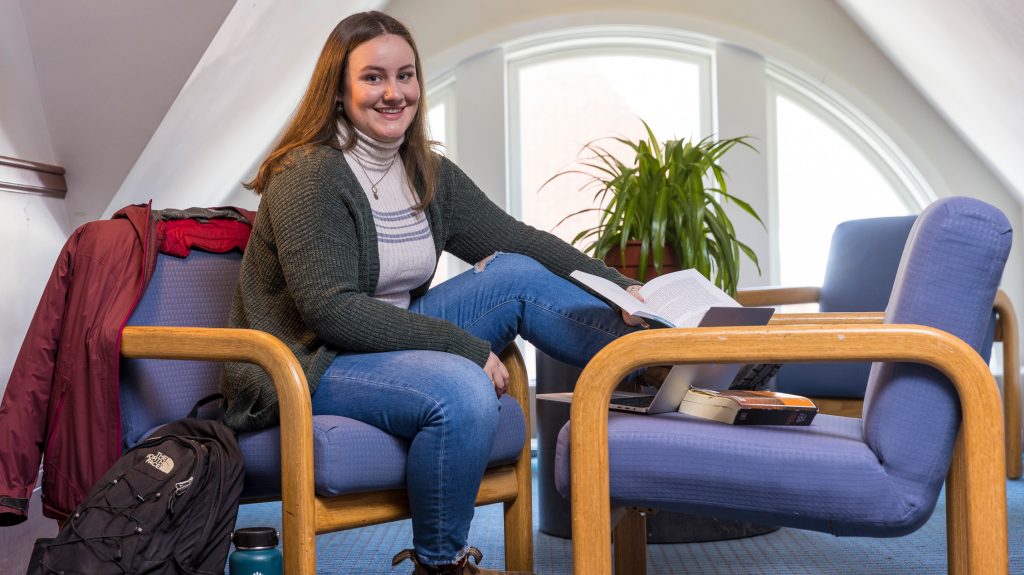
Gone are the days of interns fetching coffee and picking up dry cleaning. Interns today gain valuable work experience while making a tangible impact. And they may even lead to a job offer.
In this two-part series, students from the Class of 2022 share how they turned internships into full-time jobs.
Freshwater Society: a nonprofit dedicated to preserving freshwater resources.
Olivia Forsheé (Milwaukee, Wis.)
Environmental studies major, with a psychology emphasis
How did you find the internship? Career Exploration staff and Macalester faculty were crucial in my internship search. When looking into internships for my Environmental Leadership Practicum course in fall 2021, I had in mind a moving presentation from my Environmental Politics and Policy class. John Linc Stine from Freshwater Society had come to talk to our class about environmental policy. When I applied for their internship, I reached out to him directly to reintroduce myself and demonstrate my interest.
What will your full-time job look like? I will help Freshwater carry out authentic community engagement with rural and BIPOC communities all over Minnesota to gather input on revising the 2020 State Water Plan. This will help the state better allocate resources to the environmental and water issues that matter most to vulnerable communities. I look forward to working to enact meaningful change in the environmental policy sphere.
Advice for making the most of an internship? Advocate for your needs. This can be hard in an entry-level position, but speak up if you are struggling with a task or a deadline. Speak up for the type of work you like to do. If you are ever in need of mental or emotional support, reach out to a coworker or boss.
 Travelers Insurance: Business Insights & Analytics Leadership Development Program
Travelers Insurance: Business Insights & Analytics Leadership Development Program
Gabrielle Isaac-Herzog (Philadelphia)
Geography and classics majors, with an English minor
How did you find the internship? I applied through Handshake, which Macalester uses for job postings. I was nervous about the technical portion of the interview, so I met with John Mountain in Career Exploration. He took me through some practice questions and told me what to expect. My best friend and roommate also works in Career Exploration. She tore my resume apart and put it back together beautifully.
What was your role? Because it was a leadership development program, I did a lot of training, which was great. I felt like I was being paid to learn. There was also a lot of networking. I spent a couple of hours every day having conversations with people involved in the geospatial world of insurance. I learned how to use SQL, a database manager. To help with the pricing of insurance plans, I mapped and analyzed the results of a risk model for wildfires.
What are your long-term career goals? My heart is torn between the modern and fast-growing technology of GIS and data analytics—and reading ancient texts. This year, I’m doing a lot of work in ancient texts. My honors project is about the Bible, and I might go to rabbinical school at some point. I spent a lot of time talking to people in Career Exploration, particularly Kate Larson, about the idea of a career arc and short and long-term goals. One of my primary goals leaving college is financial security, and Travelers offered me that. I really love doing GIS, and I’m excited for the learning opportunities that I’m going to continue to have.
Advice for making the most of an internship? Always ask questions; you don’t have to know everything. Both my internship managers said, “Google is my best friend.” It’s easy to feel imposter syndrome, but everyone has been in your place. They got to where they are now through asking questions.
March 14 2022
Back to top




